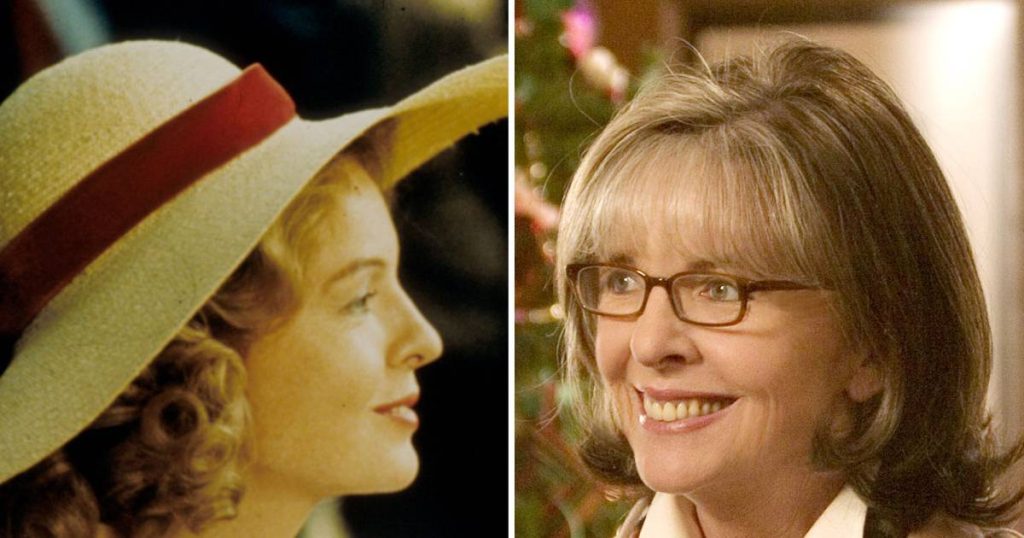Diane Keaton, an enduring figure in Hollywood, has graced the silver screen for over five decades, captivating audiences with her versatility and unique on-screen presence. Her journey began on the Broadway stage in the groundbreaking musical “Hair” in 1968, a stepping stone to her cinematic debut in 1970’s “Lovers and Other Strangers.” However, it was her role as Kay Adams in Francis Ford Coppola’s 1972 masterpiece, “The Godfather,” that catapulted her to stardom. Despite initial self-doubt about her place within the iconic film’s ensemble, Keaton’s portrayal of Michael Corleone’s wife became a pivotal element in the saga, marking a turning point in her career.
Keaton’s connection to “The Godfather” remains a poignant aspect of her career. Years after the film’s release, she admitted to not having revisited it for almost three decades. Upon finally viewing it again, she was overwhelmed by the collaborative brilliance of the cast and crew, captivated by the film’s enduring beauty and the impact of Coppola’s artistic choices. She reprised her role as Kay in both sequels, solidifying her presence within the cinematic legacy of the Corleone family. Her performance as Kay Adams showcased a delicate balance, portraying a woman navigating the complexities of love, family, and the moral ambiguities of the mafia world.
Beyond the dramatic intensity of “The Godfather” trilogy, Keaton’s career blossomed with a diverse range of roles, demonstrating her comedic prowess in films like “Annie Hall,” “Father of the Bride,” and “The Family Stone.” “Annie Hall,” directed by and co-starring Woody Allen, solidified Keaton’s status as a comedic force, earning her an Academy Award for Best Actress. Her portrayal of the quirky and endearing Annie Hall resonated with audiences, solidifying her ability to embody characters with depth and vulnerability, even within the realm of comedy. This ability to seamlessly transition between dramatic and comedic roles cemented her position as one of Hollywood’s most versatile actresses.
In “Father of the Bride,” Keaton charmed viewers as Nina Banks, the supportive and loving wife of George Banks, played by Steve Martin. Her portrayal of a mother navigating the emotional rollercoaster of her daughter’s wedding resonated with audiences, further showcasing her ability to depict relatable family dynamics with warmth and humor. Similarly, “The Family Stone” presented Keaton as Sybil Stone, the matriarch of a complex and endearing family, demonstrating her nuanced portrayal of familial relationships. Her costars, like Luke Wilson, recognized her as a leader on set, admiring her professionalism and the quiet strength she brought to her roles.
Keaton’s career trajectory is a testament to her ability to inhabit a wide spectrum of characters, from the dramatic weight of Kay Adams to the comedic charm of Annie Hall. Her performances are marked by a distinct naturalism, a quality that allows her to connect with audiences on a deeply personal level. This naturalism translates into a sense of authenticity, making her characters feel relatable and genuine, regardless of the genre. Her ability to portray both strength and vulnerability, humor and gravity, has ensured her enduring appeal throughout her career.
Beyond her on-screen accomplishments, Keaton’s influence extends to other creative avenues, including writing and directing. Her memoir, “Then Again,” offered a glimpse into her personal journey, reflecting on her life and career with candor and insight. This foray into writing further showcases her multifaceted talent and her desire to explore different forms of creative expression. As Diane Keaton continues to navigate the landscape of Hollywood, her legacy as a versatile and enduring actress remains firmly cemented, inspiring generations of actors and captivating audiences worldwide with her unique blend of talent, charisma, and authentic portrayal of the human experience.

